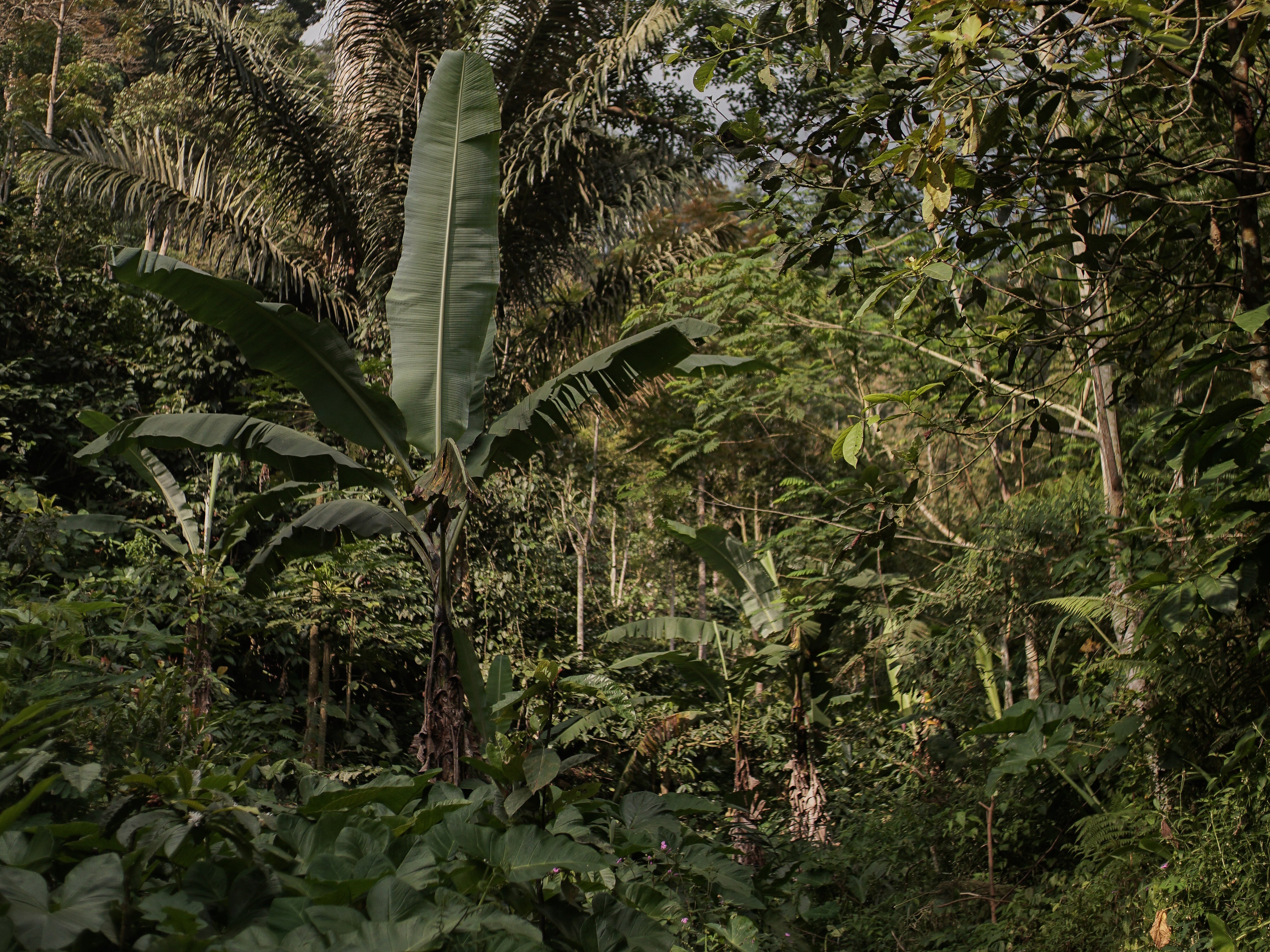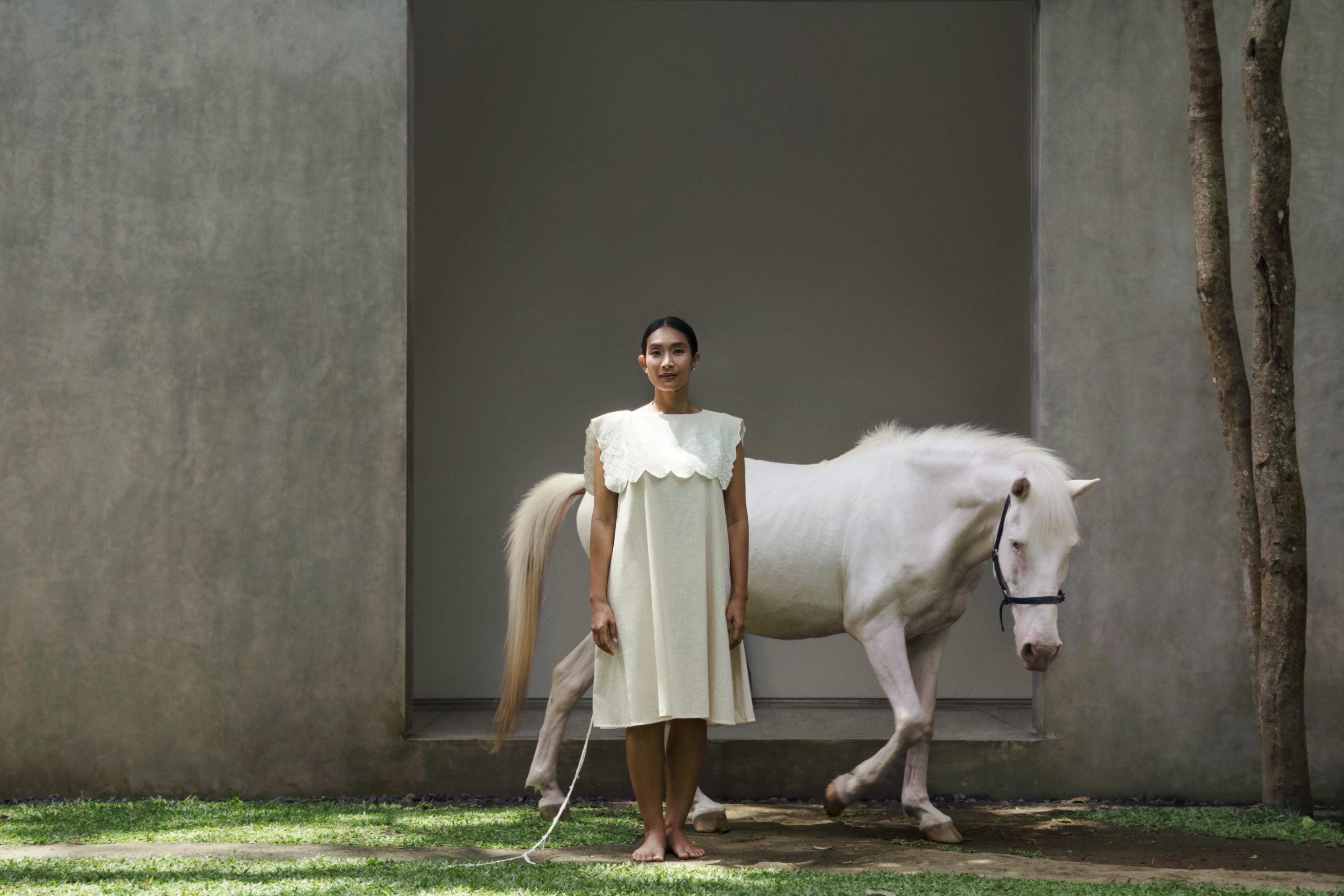
I was holding on for dear life as our car slowly ascended the mountain slopes. Two hours ago, the paved road ended. Leaving us to navigate the rest of the journey through slippery rocks.
Left, right. My body followed the inertia of the car as it navigated through the constant bumps. I was carsick when we finally reached the village, there really is no word to describe the gratitude of stepping back on non-moving ground.
Me, Bertram and Linna, our field staff, were in West Timor to evaluate our first Mama Kapas harvest. A lot has happened since we started working here in 2020.
What began as a reforestation program has evolved into a holistic regenerative farming initiative. With cotton as a base crop that can provide alternative income for women in the village during the harsh dry season.
Last year, we began distributing various non-GMO cotton seeds to trial growing Tumpang Sari cotton. Historically, cotton was one of the plants that flourished in these arid regions. Surviving even in these dry, alluvial clay soils without any water access besides seasonal rainfall.

In the dry season, water becomes scarce. Even this river dries up.
We came with high hopes, expecting to see successful results of this year’s harvest cycle.
So, when we sat down under the Tamarind tree, waiting for the farmers and Mamas to slowly group, we expected them to bring mountains of white fluffs with them.
Nothing prepared us for the shock of seeing a tiny bag of cotton being put on the table, no more than 5 kilograms* in total.
*To give you a sense of scale, 1 KAPAS Nomad Coat is made with 3 kilograms of cotton.

 Evaluating and listening to the community is important for us in finding what works.
Evaluating and listening to the community is important for us in finding what works.
Slowly, the community started sharing their experiences. The fences we built last year to prevent cows from entering the agroforests were apparently not high enough to keep goats from jumping in. All it took was a couple of daredevil goats to completely devour their plants.
Moreover, the local snails seem to come exactly at the moment cotton flowers bloom. This is the stage right before the harder bolls are developed, preventing the plants from producing fibers.
 The unexpected culprit.
The unexpected culprit.
The setback felt like a failure. A year, lost.
Have you ever felt this? When you try your best but the end results are just not what you expected?
It was Mama Yupiter who lifted my spirits again. After the gathering, we found ourselves sitting under the cassava trees. Surrounded by the remaining cotton plants.
She told me not to give up. For even though this year we didn’t manage to achieve what we wanted, the experience has given her so much hope.
Planting cotton again reminded her of her ancestors – of the traditions she grew up with, which was forgotten as they were told to ‘modernize’ and seek progress. Witnessing how imported threads took over the weaving industry, eradicating what was once an endemic plant completely.

Happy place – the Ibus always remind me of what matters.
Climbing a mountain is never easy, she said. There are ups and downs. But we must never forget why we do it in the first place.
Then and there, I felt the tiredness and the aches from the long trip dissipate.
It’s a reminder that when it comes to working to restore, there are no quick fixes. There’s only hard work, fueled by the dream to change the status quo.
Taking steep hikes up and down the mountains. Going down to the mud with the farmers. To get a sense of their way of life, using what’s already available to create better solutions that benefit communities.
Setting our own farm-to-closet supply chain wasn’t an easy feat to achieve. Let alone scale. But we take our mission seriously. And challenges we face on the field is just part of the journey – even if that means getting a little muddy.
 Despite all, hope is high. Especially seeing how the cotton plant has brought life back to this degraded alluvial clay soil.
Despite all, hope is high. Especially seeing how the cotton plant has brought life back to this degraded alluvial clay soil.
For now, we’re researching natural ways to hinder snails from snacking on the cotton flowers. Bertram immediately thought of the grapes grown in the surrounding villages near his hometown in Germany that had similar issues. More updates to follow!
And this is what goes on behind your most meaningful clothes. A mission that wouldn’t be possible without you. Thank you for choosing change!




